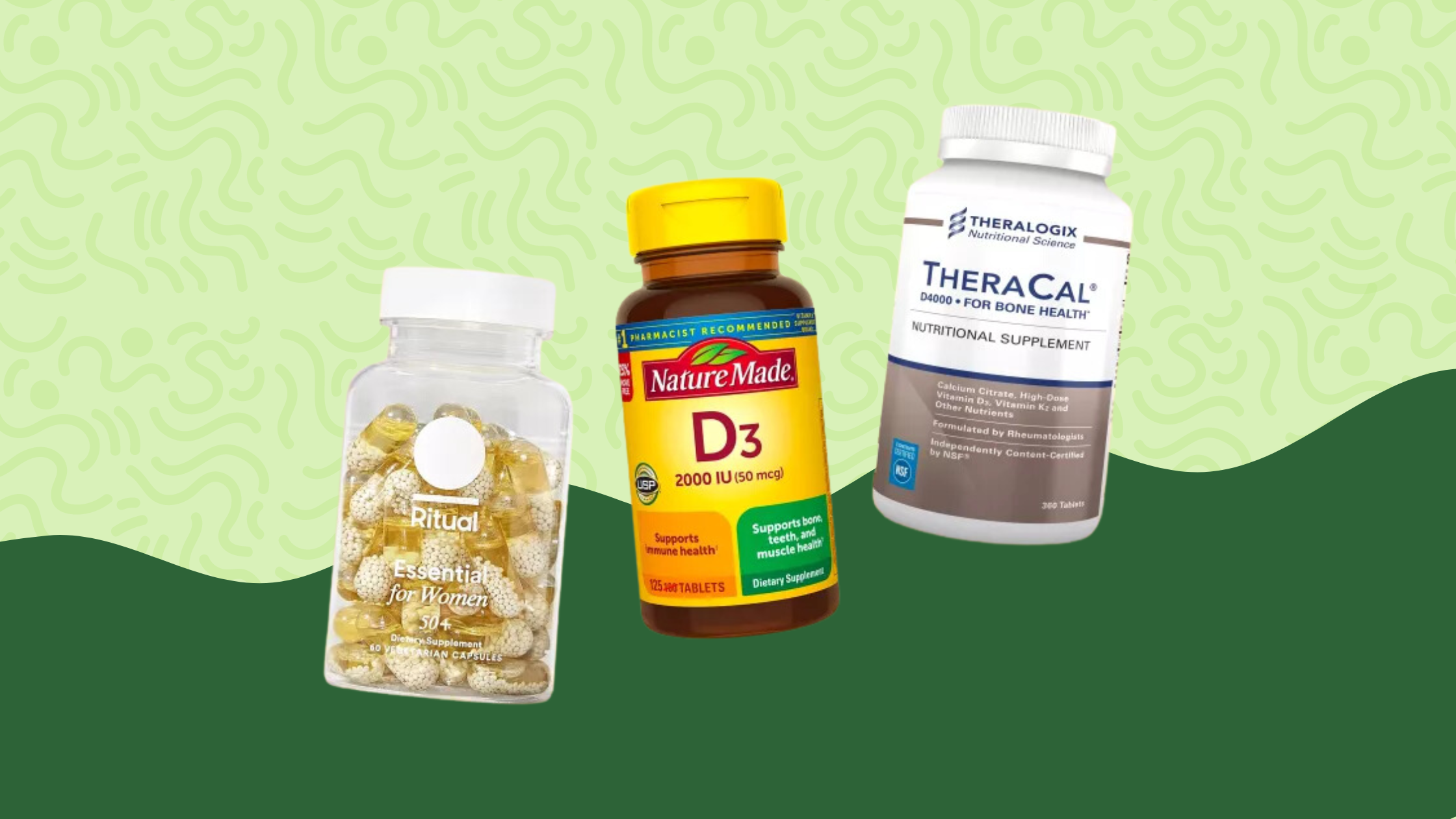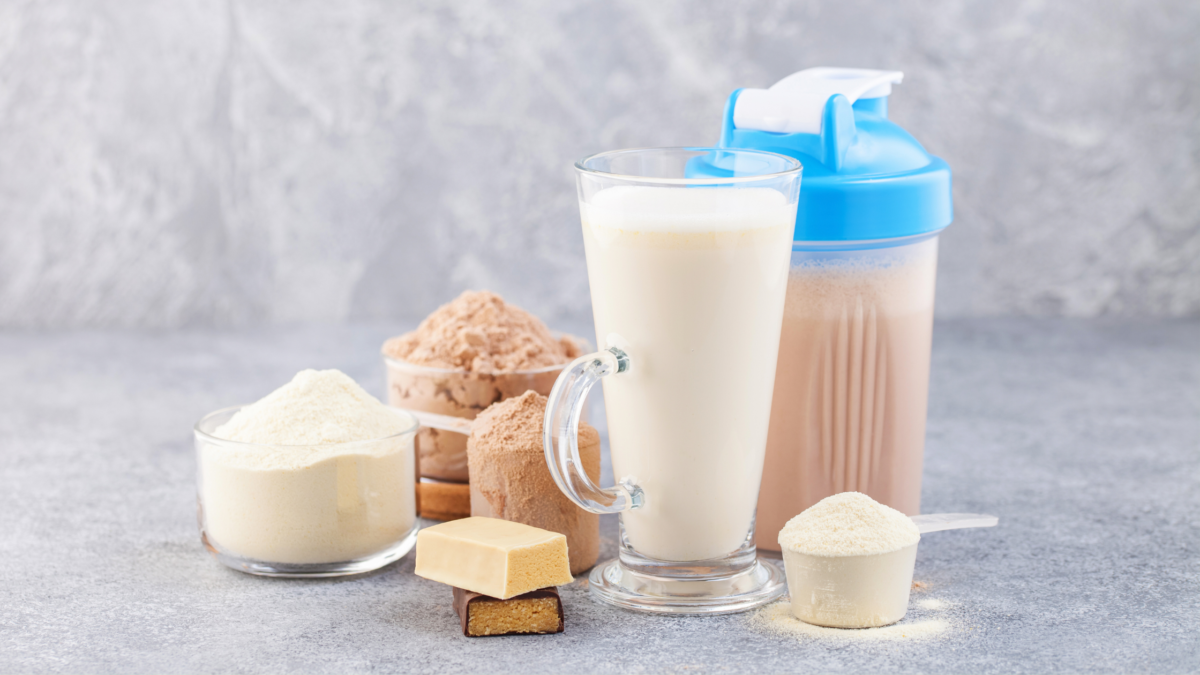


Medically Reviewed By Margaret Etudo, BPharm. Written By The Vitamins For Woman Team.
Collagen is an insoluble, fibrous protein found in your skin, bone and connective tissues. However, it diminishes as you age. This is why you should know the best way to take collagen for bone health.
Collagen is the most abundant protein in mammals. About one-third and 25% of your body’s protein comprises this compound. It is found throughout your body, especially in your skin, cartilage, blood vessels, muscles, teeth and bones.
However, collagen affects your body’s mechanical, structure, and tissue formation properties. But in a good way: it is used to construct the ligaments and tendons due to its tensile strength. Collagen allows minerals, like calcium and phosphorus, to bind to bone tissues, supporting bone regeneration.
As you get older, your body begins to lose its ability to produce more collagen. Various factors can also contribute to this leading to bone-related diseases. As a result, your bones become porous, less rigid and dense and more prone to fractures.
Now, let’s look at what collagen does, the type of collagen for bone healing, its benefits and the best collagen for bone and muscles.

Collagen is an essential component of your body’s extracellular matrix. It essentially acts like a glue, holding your tissues and bones together and providing structure, strength, and support to your body’s tissues. It also plays a crucial role in:
There are about 28 different types of collagens. However, these are the best collagen for bones:
This is the most abundant collagen type, with about 90% in the body. Type I is commonly found in your bones, skin, and tendons. It provides structure and prevents sagging, wrinkles, brittle nails, and thin hair. Your collagen I level starts to dominate around the age of 25.
This type of collagen is a main component of hyaline cartilage. It is responsible for preventing friction between your joints. Type II collagen, the collagen for bones and joints, treats joint pain and inflammation.
This type of collagen is typically found in reticular fibres, such as bone marrows. These thin, fibrous connective tissues form networks within your body. Type III collagen is the second most abundant collagen, also found in your skin, blood vessels, and muscles. Type III and I collagen are essential in wound healing and tissue regeneration.
Collagen comes in handy as you get older. Studies show that there are several benefits of collagen for bone health. Some of these benefits include:
A study on 131 premenopausal women who took collagen peptides shows a significant increase in bone mineral density. Collagen mainly strengthens parts of your bone prone to osteoporosis and fractures like the spine and femoral neck.
Older people experience sarcopenia, a condition characterised by a decline in muscle mass and strength. Using the best collagen for bones and muscles while exercising regularly boosts muscle proteins like creatinine. Creatinine is responsible for muscle growth. A 12-week study on 27 elderly mean experiencing age-related muscle mass loss shows that those who took 15 grams of collagen daily and exercised gained more muscle mass and strength than those who did not.
Joint pain causes caused by repetitive and strenuous activity is common in many people. Collagen peptides also reduce joint pain and stiffness in people who have osteoarthritis. Studies show that athletes who took collagen supplements experienced reduced joint pain. People who are athletes and have osteoarthritis can use collagen for their bones and joints.
With exercise, collagen also increases mobility and boosts the overall health of joints. It supports the production of cartilage and lubrication between your joints.
If you have broken any of your bones, you can use collagen for bone healing. Collagen peptides support tissue repair and regeneration of new bone cells. They provide the building blocks of the bone and speed up the rate of fracture healing in mice and humans.
Collagen supplements are generally considered safe for bone health. Like every supplement, you may experience mild side effects like:
If you notice any of these side effects, speak to your doctor immediately. As such, avoid taking collagen supplements if you are pregnant, breastfeeding or have a pre-existing medical condition.
It is also important to read the labels to follow the recommended dosage and understand the potential risk of combining with other ingredients.
While taking the best collagen supplements is a good option, ingesting natural sources of collagen is the best way to consume collagen for bone health. Collagen is found in animal products like:
Plant-based foods are rich in vitamin C, omega-3 fatty acids, protein, zinc and copper, which aid collagen production. Some of these include:
There is no recommended daily amount for collagen. Extensive research suggests taking about 5-10 grams daily of collagen for bone health.
You can read the supplement label to confirm how much collagen it contains.
As we mentioned earlier, your ability to produce collagen decreases as you get older. However, several factors may contribute to what causes collagen loss. Some of these factors include:
Lifestyle choices like smoking and drinking alcohol cause oxidative stress. Smoking decreases the rate of type I and III collagen synthesis. This leads to wrinkles and slows down wound healing. Increased alcohol consumption also damages your skin’s ability to repair itself and speeds up ageing.
Sugar compounds link with the amino acids in the collagen and elastin that support the dermis to produce sticky compounds called AGEs. Apart from causing elevated sugar levels, these advanced glycation end products (AGEs) contribute to skin ageing.
Long-term exposure to the sun damages the collagen and elastin structure in the skin and other parts of your body. Excessive sun exposure also reduces collagen production.
Some people naturally produce smaller amounts of collagen. Genetic disorders like osteogenesis imperfecta, subtypes of the Ehlers-Danlos syndrome, affect collagen production.
Yes, collagen really works. Collagen peptides help to increase bone mass density. Studies also show that collagen also stimulates the growth of new cells for bone healing. Collagen supplements also reduce joint pain and stiffness. This will benefit anyone who wants to use collagen for bone health.
Taking collagen supplements daily is good for you when you take them in the recommended doses. However, the research on the long-term safety of collagen supplements is limited.
Yes, they do. Collagen supplements interact with non-steroidal anti-inflammatory drugs and anti-diabetic medications. They also interact with blood thinners, leading to an increased risk of bleeding. Speak to your doctor before you take any collagen supplements.
Collagen plays a vital role in maintaining bone health by providing structure, strength, and support to tissues. Remember that it is found in your skin, cartilage, blood vessels, muscles, teeth, and bones. However, as you age, collagen loss occurs, leading to bone-related diseases and porous, less rigid, and dense bones.
To get the best collagen for bones and muscles, you can eat red meat, bone broth, chicken skin, fatty fish and egg whites. You can also include plant-based foods rich in vitamin C, omega-3 fatty acids, zinc, and copper. Consult a healthcare professional today to guide you on the best way to consume collagen for bone health.

medically reviewed by margaret etudo, BPharm. written by the vitamins for woman team.
Really appreciated the deep dive into Type I, II, and III collagen. I’ve been trying to figure out which would be best for my fitness goals. Cheers to Vitamins For Woman for the clear breakdown!
so if i get more sunlight do i lose less collagen? didn’t get that bit, can someone explain pls?
I’ve tried collagen supplements before, and they did nothing! How can you guarantee these results, Vitamins For Woman? Sounds like just another health fad to me.
hey, what’s the best time of day to take collagen for max benefits? Morning or night?
JJ_Smooth, it’s generally recommended to take collagen in the morning on an empty stomach for best absorption.
Loved the part about improving joint mobility. My knees haven’t been the same since my farm accident. Gonna give collagen a try, thanks for the info!
if collagen was a video game, what genre would it be? lol
It’s fascinating how collagen plays such a critical role in both plant and human health. I wonder if there’s a way to enhance collagen in plants, similar to supplements in humans. Has anyone explored this?
So, Vitamins For Woman found the magic potion, huh? Next, they’ll be telling us it cures baldness and turns lead into gold.
not sure I buy all this. my trainer says protein is king for bones and muscles, not collagen. what’s the real scoop?
MikeHawk, protein is important, but collagen is a type of protein that specifically helps with joint and bone health.
But is the collagen in supplements actually absorbed by the body? That’s the real question.
[…] weight loss. Each pack could come in the form of powder, gummies, and bottled supplements such as collagen peptides and immune boosters for kids and teens. According to Persona Vitamins reviews, the following were […]
[…] may also promote bone formation, improve calcium absorption, and support collagen production, all of which help keep the bones strong and […]
[…] in collagen synthesis, a critical protein that forms the framework of bone […]
I don’t think the title of your article matches the content lol. Just kidding, mainly because I had some doubts after reading the article.
[…] to studies, taking protein or collagen supplements after knee replacement surgery helps to quicken wound healing. Using a protein supplement while […]
Your point of view caught my eye and was very interesting. Thanks. I have a question for you.
Can you be more specific about the content of your article? After reading it, I still have some doubts. Hope you can help me.
Your article helped me a lot, is there any more related content? Thanks!
[…] to make collagen-rich bone broth at home? Simmer grass-fed beef or organic chicken bones with water, vinegar, onions, carrots, and […]
Your article helped me a lot, is there any more related content? Thanks!